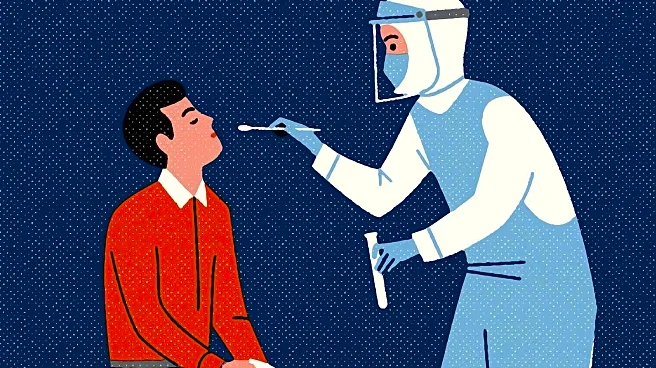What's Happening?
The World Health Organization (WHO) has highlighted a significant healthcare worker gap in Africa, projecting a shortage of six million workers by 2030. This gap is critical as the continent, which has only 4% of the world's health workforce, bears 24% of the global health burden. The WHO emphasizes the need for a fundamental shift in global health equity to address this issue, advocating for substantial investment in health workers. According to WHO and World Bank data, investing in health workers can yield high returns in global development, with every dollar potentially generating up to $20 in economic and social value. The organization also stresses the importance of empowering local leaders and aligning efforts with national health plans to strengthen health systems.
Why It's Important?
The projected healthcare worker gap in Africa poses a significant challenge to global health equity and development. Addressing this gap is crucial for improving health outcomes and achieving the Sustainable Development Goals by 2030. The WHO's call for investment in health workers highlights the potential for substantial economic and social returns, which could benefit global development efforts. Moreover, empowering local leaders and aligning with national health plans can lead to more sustainable and effective health systems. This approach could help mitigate the impact of reduced foreign aid and ensure that health gains are protected and expanded.
What's Next?
The WHO's emphasis on investing in health workers and empowering local leaders suggests a shift towards more sustainable and locally-driven health systems. This approach may lead to increased collaboration between international organizations, governments, and philanthropic entities to address the healthcare worker gap. As countries work towards increasing domestic financing for health, the role of philanthropy and international aid will be crucial in supporting these efforts. The WHO's call for a fundamental shift in global health equity may also prompt discussions on how to better align international aid with local health priorities and strengthen health systems globally.
Beyond the Headlines
The WHO's focus on health equity and investment in health workers highlights broader ethical and cultural dimensions in global health. The organization's call for a rejection of colonial and paternalistic giving practices underscores the importance of trust and collaboration with local leaders. This approach could lead to more culturally sensitive and effective health interventions, ultimately improving health outcomes and reducing disparities. Additionally, the emphasis on data-driven decision-making and avoiding analysis paralysis reflects a shift towards more pragmatic and impactful health strategies.









